It is Thursday, October 31, 1968.
President Lyndon Johnson has called Vice President Hubert Humphrey, the Democratic presidential nominee, on the telephone.
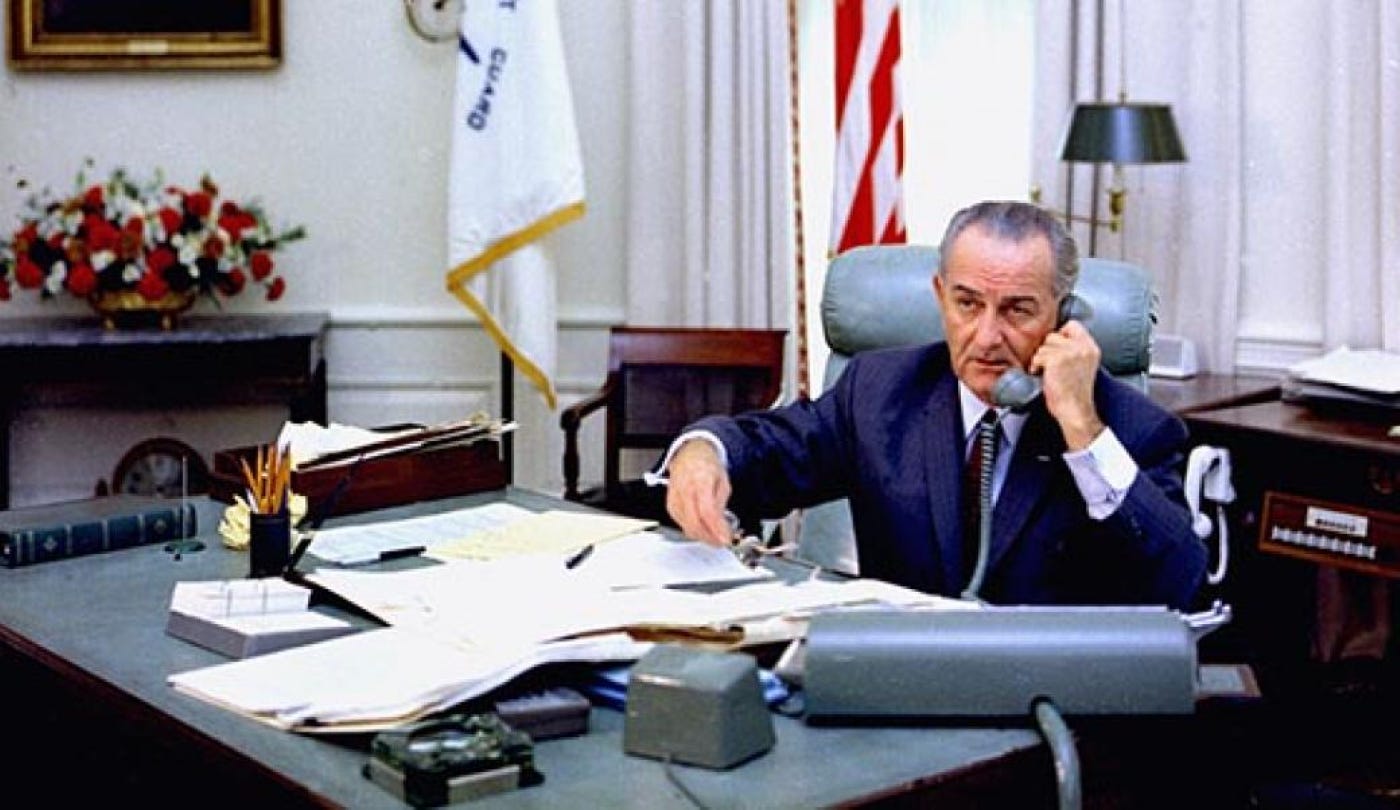
In one hour, at 8:00 PM that evening, President Johnson will announce a halt to US bombing of North Vietnam in a televised address to the nation.
After five months of secret meetings in Paris, representatives of North Vietnam and the US have reached an agreement on the structure of a peace negotiation.
The shape of the negotiating table and the participation of all warring parties — North and South Vietnam, the Vietcong and the US — has finally been settled.
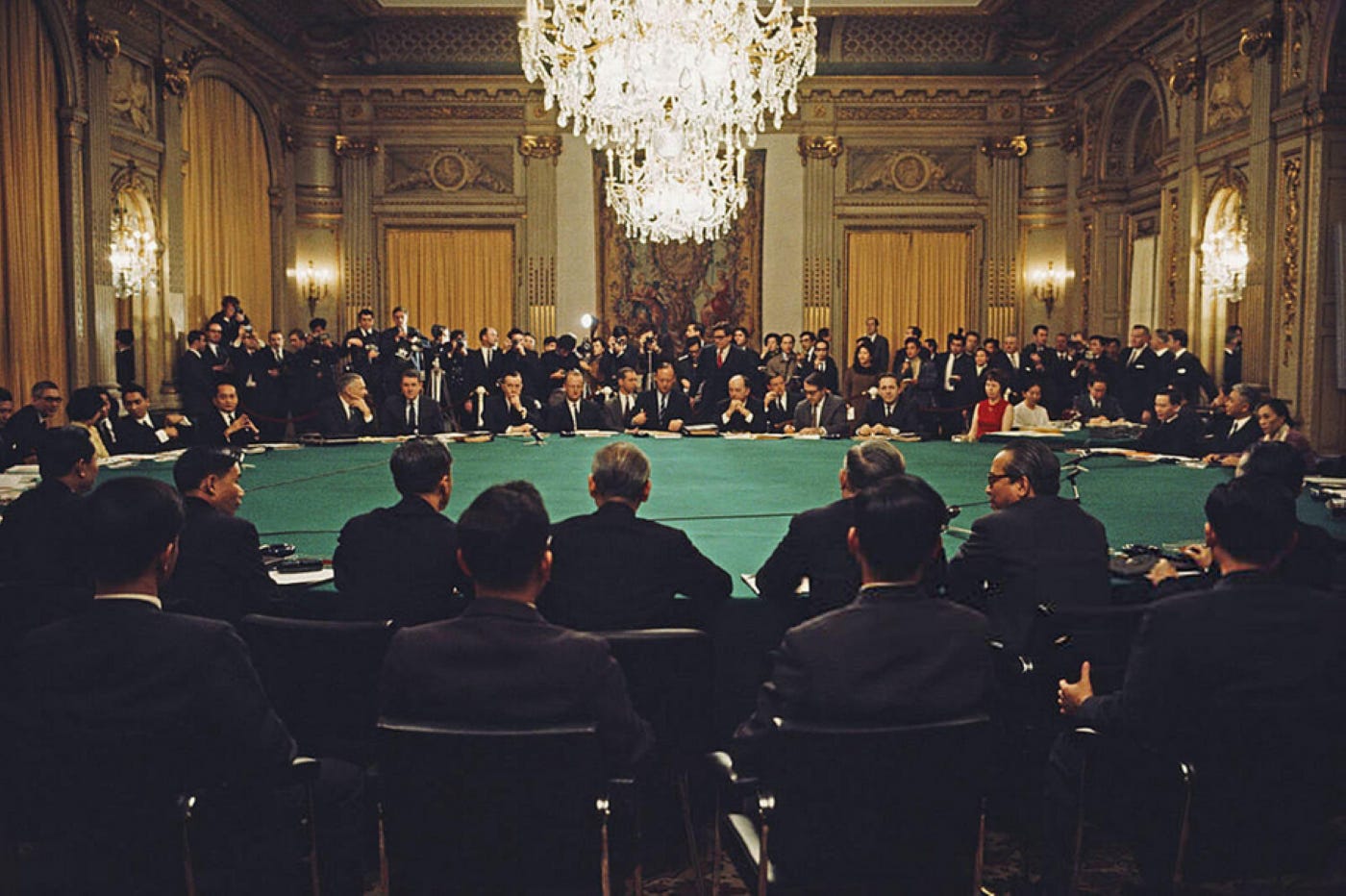
Johnson speaks with Humphrey:
“Now, [the North Vietnamese] have agreed that these [South Vietnamese] puppets that they said they’d never sit down with, that they can come and sit in a room with them, and they’ll talk to them.
“Now, that is the major thing they’ve agreed to.”
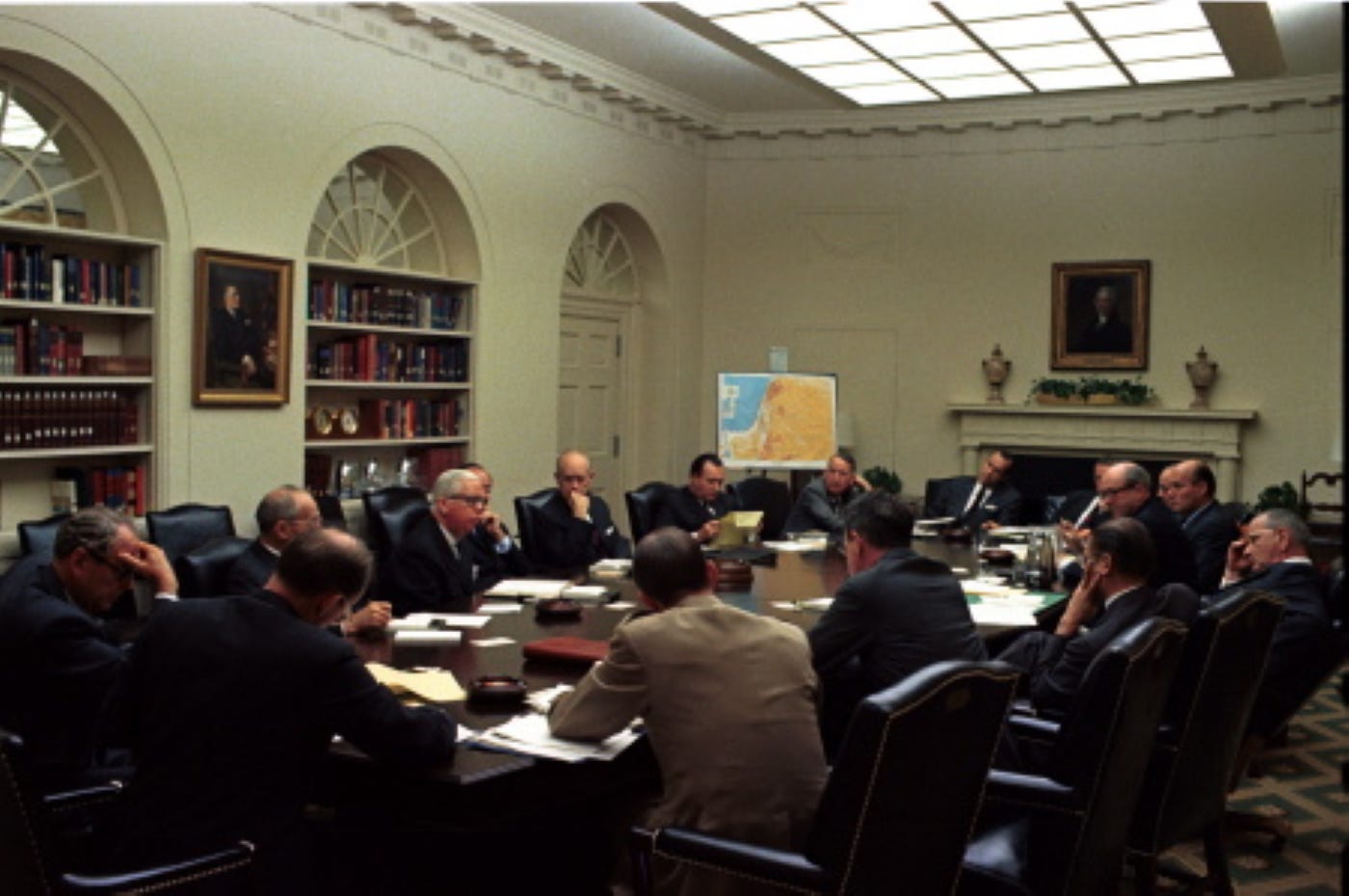
There was unanimous agreement among Johnson’s military and civilian advisors that North Vietnam was weakened and was ready to engage in meaningful negotiations to end the war.
The timing was right.
Johnson tells Humphrey that North Vietnam has used previous bombing halts to repair battle damage and funnel more troops into the battle zone.
He has warned North Vietnam that, if they do this again, especially if they bomb South Vietnamese cities or surge troops into the DMZ, he’s given rules of engagement to the US military commander in Vietnam to respond.
Johnson:
“Now, I’m going to stop [the bombing], but I’m just going to start it just as quick as I stopped it if they take advantage and go to kill my boys.
“And I’ve told them that.”
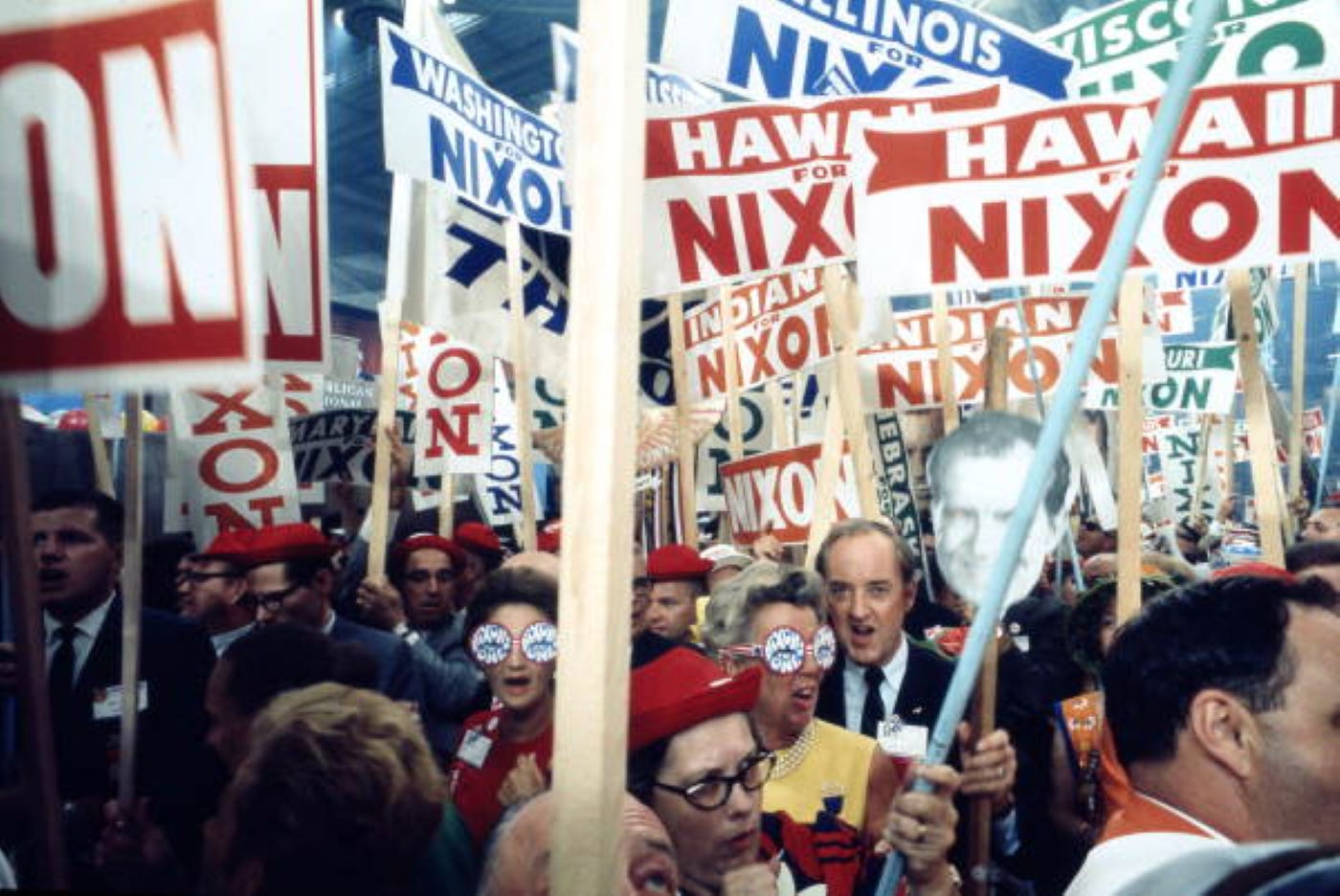
The presidential election is in five days.
Republican presidential nominee Richard Nixon’s early lead in the polls is evaporating.
In the past month, Humphrey has reduced Nixon’s lead in the polls from 15 percentage points to 2-3 percentage points.
Johnson tells Humphrey that the secretary of state has warned him that the bombing halt will be interpreted as a political act intended to bolster Humphrey’s candidacy.
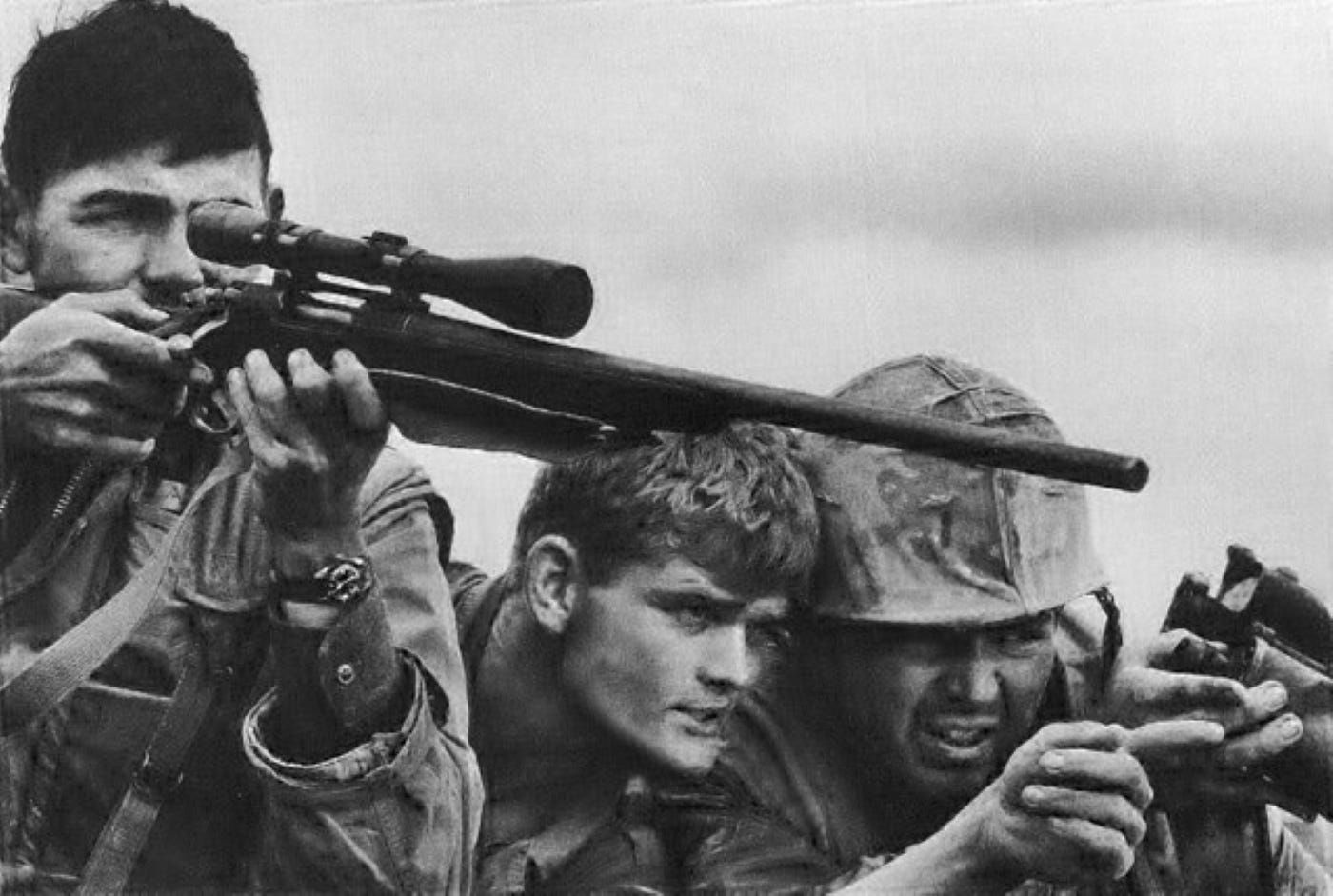
Johnson:
“He said the temptation’s going to be—a lot of people will say we did this for you.
“So, for God’s sakes, we know—everybody knows we don’t play politics with human lives.
“But we did what’s right, and we couldn’t wait.
“If we did, we might not have this offer a week from now.
“We don’t know.
“And there may be at least 500 [Americans] killed tomorrow, anyway.”1
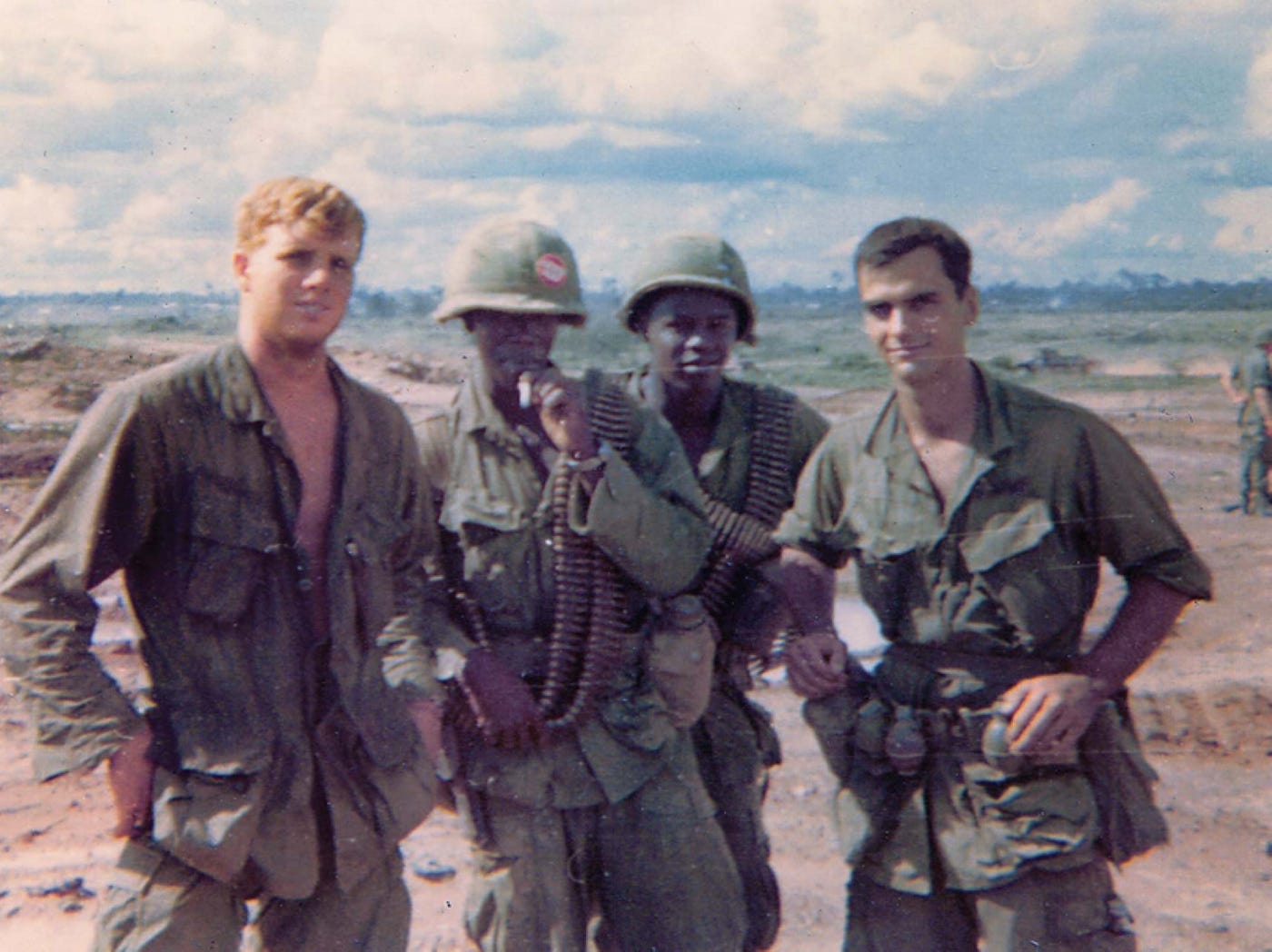
The secretary of state was right.
Republicans called the bombing halt ‘an election weekend stunt’ intended to benefit Humphrey, rather than an honest attempt to act in the nation’s best interest.
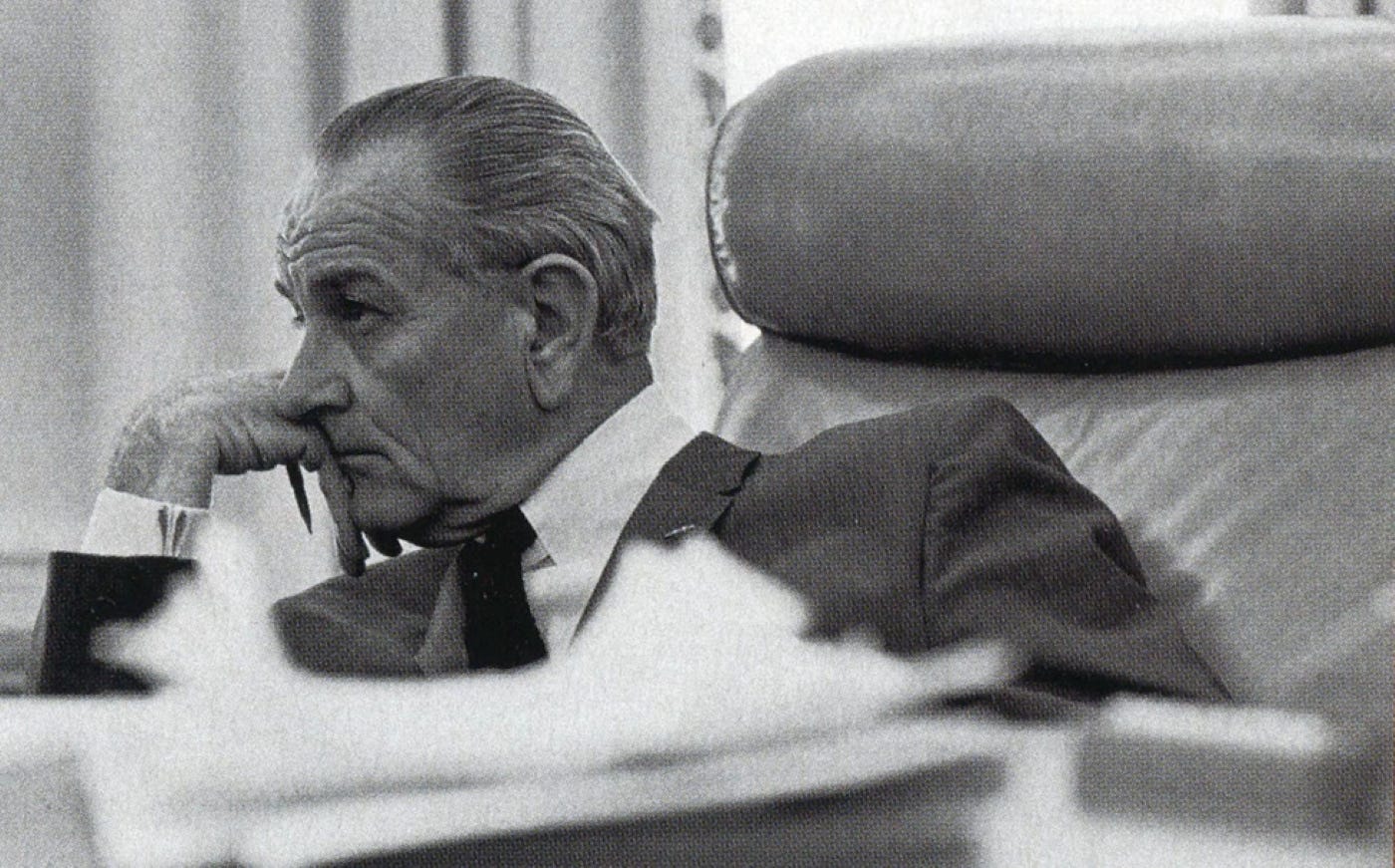
But despite his efforts, the peace Johnson sought in Vietnam would not come during his remaining months in office, nor for many years afterwards.
And what he had told Senator Richard Russell of Georgia three years before remained true:
“A man can fight if he can see daylight down the road somewhere,
“but there ain't no daylight in Vietnam.
“There's not a bit.”
Johnson had hoped to burnish his legacy in his last months by ending this endless war, but it was not to be.
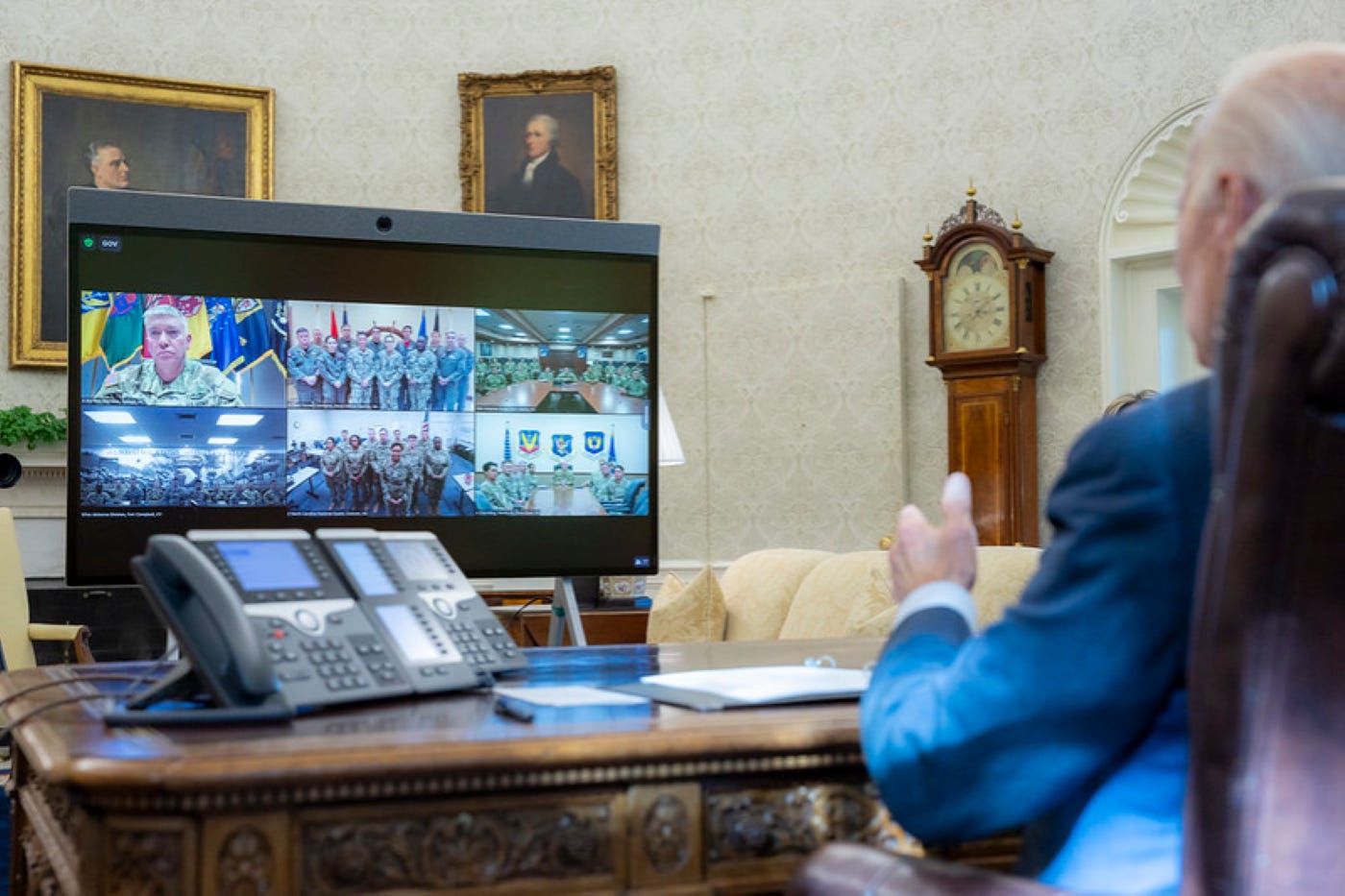
And now it is President Biden who seeks to do the same with the endless wars in the Middle East.
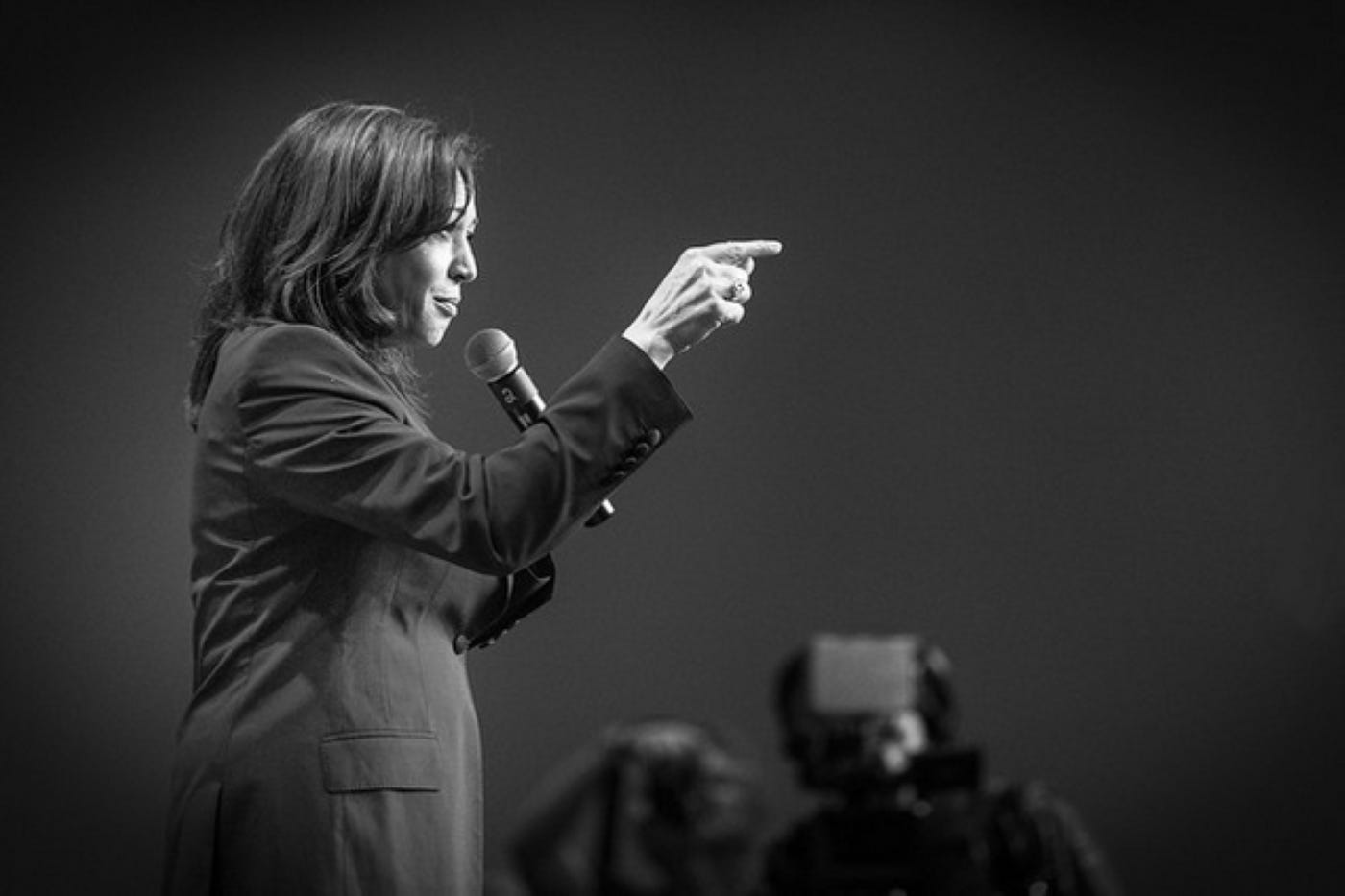
As Johnson’s failures once complicated Humphrey’s path to victory, so now do Biden’s failures complicate the path for Harris.
But as she has said, ‘running for president isn’t easy.’
******************************
I’ll see you tomorrow.
— Brenda
16,899 American servicemembers were killed in Vietnam during 1968, which, for the US, was the costliest year of the war.



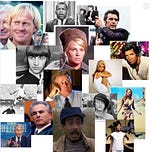

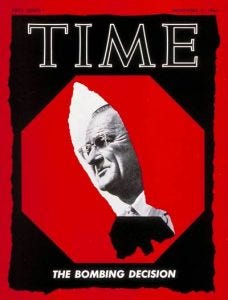
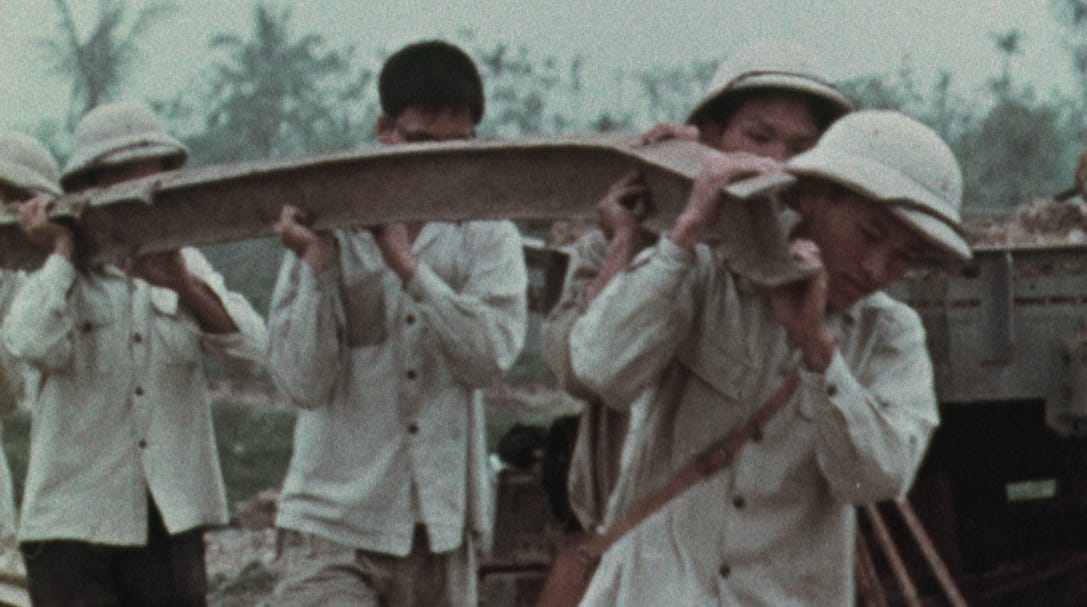
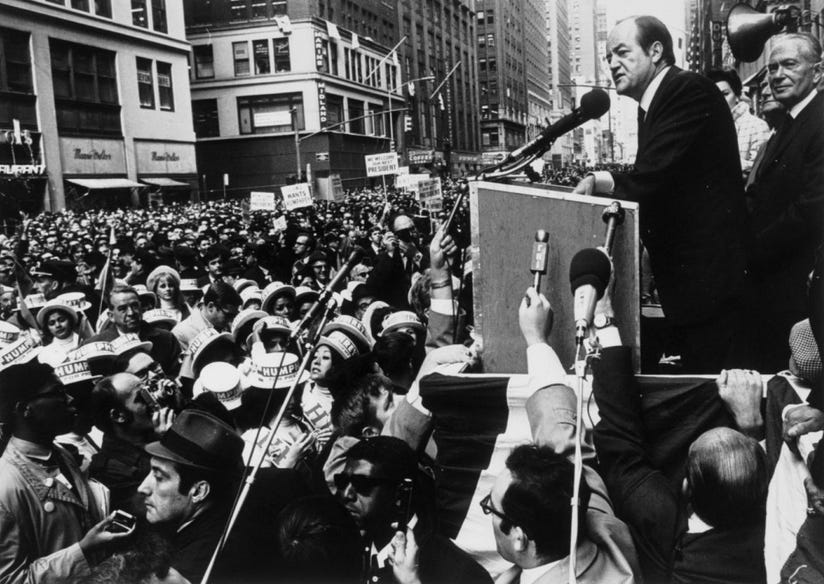










Share this post